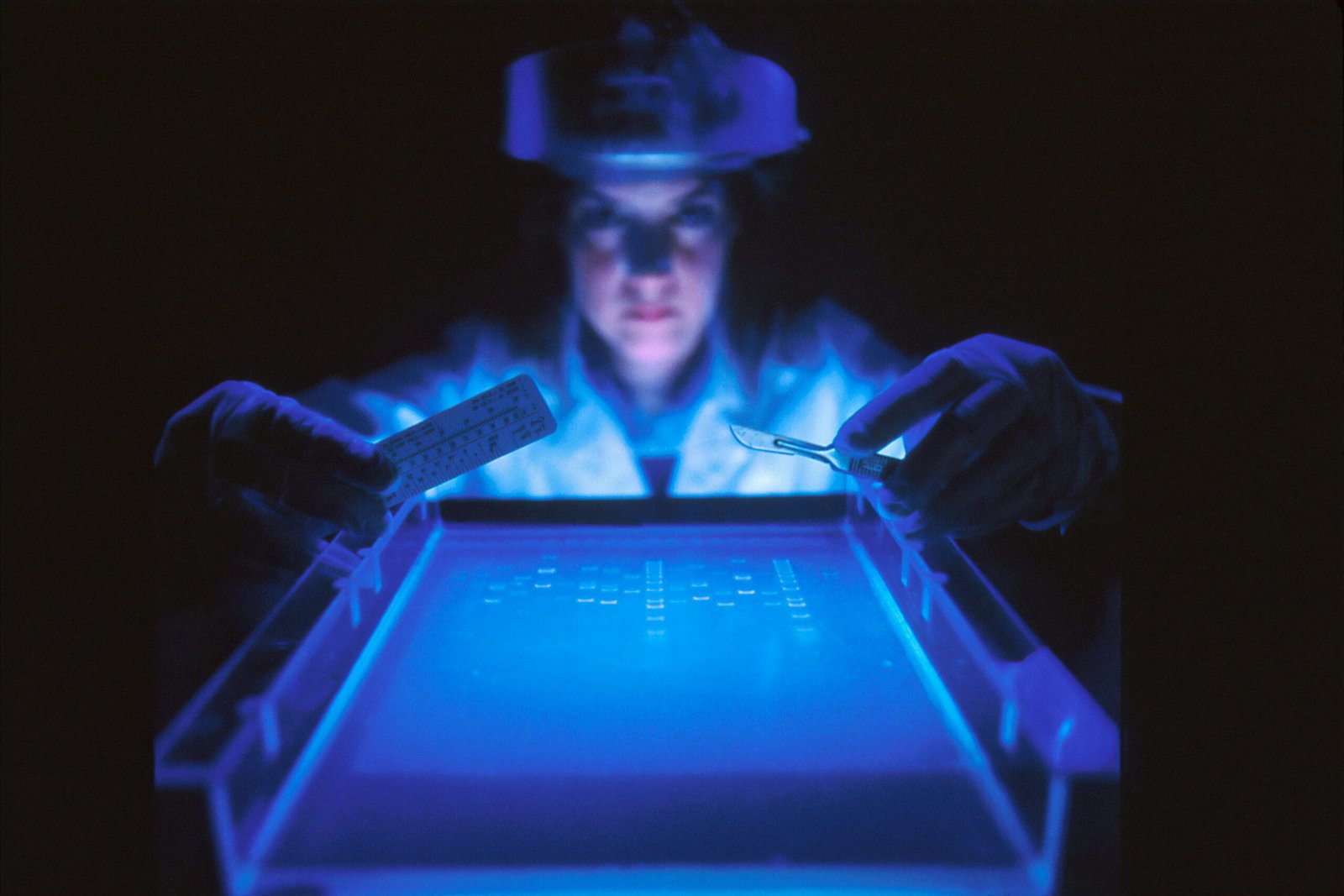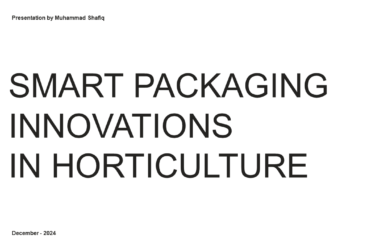What is DNA Barcoding (DB)
DNA barcoding (DB) is a molecular technique used for identifying and classifying species based on a short, standardized region of genetic material. Typically, a specific segment of mitochondrial or chloroplast DNA is extracted from an organism, and its sequence is compared against a reference database containing known species’ genetic information. This method offers a reliable approach to species identification, especially for plants that may closely resemble one another morphologically but differ genetically.
Why DB is important for Horticulture
In horticulture, DNA barcoding holds significant importance. It enhances the capability to authenticate various horticultural crops, ensuring that consumers receive the correct plant species and promoting trust among buyers. This is particularly crucial in the global market, where the demand for organic and native plants is on the rise. By utilizing DNA barcoding, exporters can provide irrefutable evidence of the species they sell, thus preventing mislabeling and contributing to the integrity of the supply chain.
Compared to traditional identification methods, such as morphological assessment, DNA barcoding exhibits numerous advantages. Morphological techniques can often be subjective and require highly trained professionals to differentiate species based on physical characteristics. In contrast, DNA barcoding allows for a more objective and faster identification process, which is essential in today’s rapidly evolving agricultural landscapes. Moreover, this technique can be applied to all life stages of plants, including seeds and vegetative materials, which can be challenging to classify using traditional methods.
For Pakistan’s horticultural exports, the implementation of DNA barcoding could lead to enhanced trade opportunities. As the international market becomes increasingly concerned with quality and authenticity, the adoption of DNA barcoding provides exporters with a powerful tool to meet these demands. In this way, Pakistan can bolster its position in the horticultural sector by providing high-quality and authentically identified products to consumers worldwide.
Current Progress of DNA Barcoding in Pakistan’s Horticultural Sector
In recent years, the horticultural sector in Pakistan has witnessed significant advancements in the application of DNA barcoding technology. This innovative method has been instrumental in enhancing the quality and traceability of horticultural exports. Various projects have emerged, focusing on the genetic identification of plant species and ensuring the authenticity of agricultural products in international markets.
Notable research initiatives conducted by universities in collaboration with government bodies have been pivotal in integrating DNA barcoding into Pakistan’s horticultural supply chain. These partnerships have facilitated the development of reference libraries that document the genetic profiles of native crops, which are essential for accurate species identification. This collaborative effort not only involves academic institutions but also includes active participation from exporters, thus bridging the gap between research and practical application.
Furthermore, success stories from the implementation of DNA barcoding highlight its positive impact on critical areas such as pest management and quality control. For instance, the identification of invasive pest species through DNA analysis has led to more effective control strategies, thereby reducing crop losses and improving yield. Additionally, the application of DNA barcoding in quality assessment ensures that consumers receive products that meet international standards, enhancing the reputation of Pakistani horticultural exports.
Moreover, the adoption of DNA barcoding has contributed to capacity building within the horticultural industry. Training programs aimed at educating farmers and exporters about this technology foster a greater understanding of its benefits, promoting a culture of quality assurance. As a result, DNA barcoding is not merely a technological advancement but a transformative approach that empowers stakeholders throughout the horticultural supply chain.
Challenges Faced by DNA Barcoding in Horticultural Exports
Despite its potential, the implementation of DNA barcoding in the horticultural export industry in Pakistan faces several challenges that hinder its widespread adoption. One of the primary obstacles is the limited awareness among farmers and exporters regarding the advantages of DNA barcoding. Many stakeholders in the horticultural sector remain uninformed about how this technology can enhance traceability, ensure quality control, and facilitate compliance with international standards. This knowledge gap poses a significant barrier to the integration of DNA barcoding into existing export practices.
In addition to awareness issues, there is a notable lack of funding dedicated to research and technological development in this field. The adoption of DNA barcoding requires investment in technology, such as sequencing equipment and bioinformatics tools, which are often expensive and beyond the budgets of many small-scale farmers and exporters. Furthermore, inadequate governmental and institutional support for research initiatives amplifies this challenge. Without proper funding, researchers cannot develop the necessary methodologies or train stakeholders to utilize DNA barcoding effectively.
Another critical challenge lies in the need for standardized protocols in DNA barcoding practices. The absence of universally accepted guidelines makes it difficult for stakeholders to adopt and implement these techniques uniformly. Variability in processes can lead to inconsistent results, undermining the reliability of DNA barcoding as a tool for ensuring product authenticity. Additionally, technological and infrastructural hurdles must be addressed to improve the overall efficacy of DNA barcoding in horticulture. Investments in laboratory facilities, training for personnel, and the establishment of collaborative networks can play a vital role in overcoming these barriers.
Ultimately, addressing these challenges will be essential for enhancing the role of DNA barcoding in Pakistan’s horticultural export sector, ensuring that it meets global standards and improves market access.
Future Directions for Enhancing DNA Barcoding in Pakistan’s Horticultural Exports
The advancement of DNA barcoding in Pakistan’s horticultural sector is crucial for ensuring the competitiveness of the country’s exports in the global market. To this end, several strategies can be implemented to enhance the effectiveness and adoption of DNA barcoding. Firstly, improving training and education for stakeholders, including farmers, exporters, and researchers, is essential. Workshops and online courses can be developed to familiarize these groups with the techniques and benefits of DNA barcoding, fostering a well-informed community that can effectively utilize technology to label and authenticate horticultural products.
Secondly, fostering public-private partnerships is vital for securing funding and resources for DNA barcoding research. Collaboration between government institutions, private enterprises, and academic researchers can create a robust framework for innovative research initiatives. Such partnerships can lead to the development of cost-effective barcoding protocols tailored for local horticultural products, ultimately supporting the enhancement of product quality and safety.
Moreover, advocating for policies that support innovative agricultural practices will play a significant role in the integration of DNA barcoding into the horticultural sector. Policymakers can be encouraged to establish regulations that promote the use of DNA barcoding, potentially offering incentives for those who adopt these technologies. This holistic approach not only strengthens the framework for quality assurance but also enhances the traceability of horticultural products.
Lastly, the adoption of advanced technologies, such as artificial intelligence and machine learning, can significantly improve DNA barcoding techniques. These technologies can facilitate faster data analysis and more accurate identification of species, leading to better market access for Pakistani horticultural exports. Emphasizing these future directions can greatly contribute to the progress of DNA barcoding, ensuring its successful implementation within Pakistan’s horticultural landscape.






